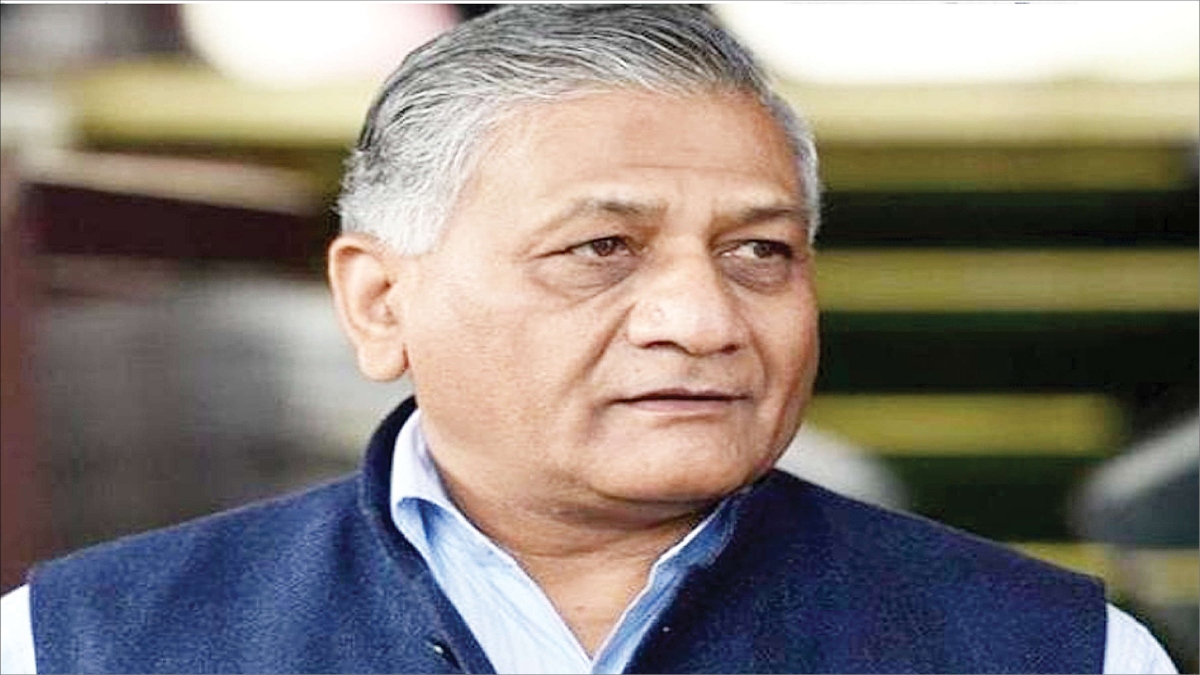


Gen (Dr) VK Singh (Retd), Minister of State for Civil Aviation, Govt of India today emphasized that in order for India to become a global hub for drones it is imperative to focus on quality, innovation and indigenization leading to lower cost. “This is how you (industry) will be able to capture the market in India and abroad. Initial investment on research and development will get you the market and will get you what has been invested in larger measure,” he added.
Addressing the two-day conference on ‘Making India a Global Drone Hub’ & ‘FICCI SMART Policing Awards’, organized by FICCI, jointly with Vivekananda International Foundation, Gen Singh stated that use of drones has grown exponentially in India. “We have to cut down the imports and policy is just not enough. If India has to become a drone hub, we have to ensure that you manufacture here. Initially the cost may be more but with the increase in volume, the prices will come down,” he emphasized.
Gen Singh also stated that the drone applications have increased in recent years and there is a need to increase the commercial market of drones. “If the commercial market does not increase then the market will not grow as the military demand is very less. With simple solution at lower price, you (industry) will capture the market and the more it grows the better it is as you create a hub and dependence of many people on it,” he added.
He mentioned that the government is also looking at ensuring that the PLI scheme fructify in pushing up the industry. It will also encourage others to join the bandwagon so that the PLI scheme can help them in taking their own markets forward. “As manufacturers of drones, you have to create your own system, suppliers and component makers which will ensure that this thrives as a market in India,” added Gen Singh.
Rajesh Aggarwal, Secretary, Ministry of Skill Development & Entrepreneurship, Govt of India emphasized on the need to increase the number of training institutes for skilled manpower and urged the industry to collaborate with the government to increase the number of teachers for RTPO (remote pilot training organization) training. “In next 2-3 months, all three regulators (UGC, AICTE and NCVT) are coming up with credit transfer framework where a 30-hour course can be transferred from one to another,” he added.
Dani, Member, SCALE Committee, DPIIT, Govt of India stated that drones can not only contribute to the defence sector but other sectors as well. “Innovation will be key for this sector. It is paramount that India becomes the drone hub for the world and the leader in this technology,” he added.
Santosh Kumar Sarangi, Director General, DGFT, Govt of India said that the innovation eco-system in the drone sector is finding out new ways of making multiple uses of drones. “DGFT is working to ensure that an enabling export environment is created. We have come out with draft guidelines and urge industry to give their feedback to prepare policies to further facilitate exports,” he added.
Amber Dubey, Joint Secretary, Ministry of Civil Aviation, Govt of India said that drones have become an essential part of country’s national security. He further stated that the three Ts including Type Certificate, Training and Tracking are critical to boost the drone sector in India. “I urge the industry to develop the quality standards to set-up manuals and policy suggestions and it is the quality that will take the country ahead. We are moving towards a completely system-based system,” he added. Speaking on the training of drone pilots, Mr Dubey said that government is also working to increase the number of training schools in India for drones from current 29 training schools. We are also working on the rules, in consultation with the industry and other stakeholders for creating a tracker of drones. We are working on the rules regarding drone trackers with FICCI, he emphasized.
Arvind Gupta, Director, Vivekananda International Foundation & Former Deputy National Security Advisor stated that the possibilities in the drone sector are infinite, and India should not be missing this opportunity to emerge as a leader in this area. Restricting the imports of drones is an important step towards Atmanirbharta, he added.
Ankit Gupta, Co-Chair, FICCI Committee on Drones said, “Making India a drone manufacturing power would contribute to the country’s target of a US$ 5 trillion economy with a larger focus on the Make in India opportunity, and once delivered, its success will contribute to national prosperity across multiple sectors. A strong case exists for a symbiotic relationship between the government and industry to realize our vision to make India the drone hub of the world by the year 2030.”
Arun Chawla, Director General, FICCIsaid that FICCI is committed to work in partnership with the Government to achieve the vision of Prime Minister to create India a Global Hub for Drones. Increasing number of drone applications coupled with favourable government regulations, growing number of Start-ups are among the reasons why the drone industry will continue to grow, he added.